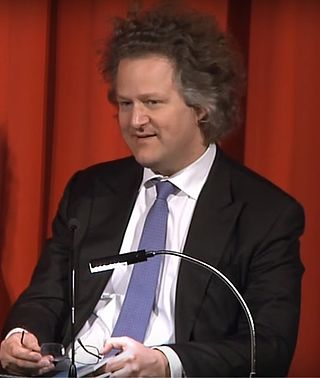| Year |
Film |
Director(s) |
Producer(s) |
Country |
|
The Girl with the Dragon Tattoo |
Niels Arden Oplev |
Søren Stærmose |
Sweden |
| I Am Love |
Luca Guadagnino |
Luca Guadagnino, Tilda Swinton, Francesco Melzi d'Eril, Marco Morabito, Alessandro Usai, Massimiliano Violante |
Italy |
| Biutiful |
Alejandro González Iñárritu |
Alejandro González Iñárritu, Jon Kilik, Fernando Bovaira, Ann Ruark, Sandra Hermida |
Mexico, Spain |
| Of Gods and Men |
Xavier Beauvois |
Pascal Caucheteux, Étienne Comar, Grégoire Sorlat |
France |
| The Secret in Their Eyes |
Juan José Campanella |
Juan José Campanella, Mariela Besuievski |
Argentina |
|
The Skin I Live In |
Pedro Almodóvar |
Agustín Almodóvar, Esther García |
Spain |
| Incendies |
Denis Villeneuve |
Luc Déry, Kim McCraw |
Canada |
| Pina |
Wim Wenders |
Wim Wenders, Gian-Piero Ringel |
Germany |
| Potiche |
François Ozon |
Eric Altmeyer, Nicolas Altmeyer |
France |
| A Separation |
Asghar Farhadi |
Asghar Farhadi |
Iran |
|
Amour |
Michael Haneke |
Margaret Ménégoz, Stefan Arndt, Veit Heiduschka, Michael Katz |
France, Austria |
| Headhunters |
Morten Tyldum |
Marianne Gray, Asle Vatn |
Norway |
| The Hunt |
Thomas Vinterberg |
Morten Kaufmann, Sisse Graum Jørgensen, Thomas Vinterberg | Denmark |
| Rust and Bone |
Jacques Audiard |
Jacques Audiard, Martine Cassinelli, Pascal Caucheteux, Alix Raynaud |
France, Belgium |
| The Intouchables |
Éric Toledano and Olivier Nakache |
Nicolas Duval Adassovsky, Yann Zenou, Laurent Zeitoun |
France |
|
The Great Beauty |
Paolo Sorrentino |
Nicola Giuliano, Francesca Cima, Fabio Conversi |
Italy, France |
| The Act of Killing |
Joshua Oppenheimer |
Signe Byrge Sørensen |
Denmark |
| Blue Is the Warmest Colour |
Abdellatif Kechiche |
Abdellatif Kechiche, Brahim Chioua, Vincent Maraval |
France, Belgium |
| Metro Manila |
Sean Ellis |
Mathilde Charpentier, Sean Ellis |
United Kingdom, Philippines |
| Wadjda |
Haifaa Al-Mansour |
Gerhard Meixner, Roman Paul |
Saudi Arabia |
|
Ida |
Pawel Pawlikowski |
Eric Abraham, Piotr Dzięcioł, Ewa Puszczyńska |
Poland |
| Leviathan |
Andrey Zvyagintsev |
Alexander Rodnyansky, Sergey Melkumov |
Russia |
| The Lunchbox |
Ritesh Batra |
Anurag Kashyap, Guneet Monga, Arun Rangachari |
India |
| Trash |
Stephen Daldry |
Tim Bevan, Eric Fellner, Kris Thykier |
United Kingdom, Brazil |
| Two Days, One Night |
Jean-Pierre Dardenne and Luc Dardenne |
Jean-Pierre Dardenne and Luc Dardenne, Denis Freyd |
Belgium, France |
|
Wild Tales |
Damián Szifron |
Agustín Almodóvar, Pedro Almodóvar, Esther García, Matías Mosteirín, Hugo Sigman |
Argentina, Spain |
| The Assassin |
Hou Hsiao-hsien |
Wen-Ying Huang |
Taiwan, China, Hong Kong |
| Force Majeure |
Ruben Östlund |
Erik Hemmendorff, Marie Kjellson, Philippe Bober |
Sweden, France, Norway |
| Theeb |
Naji Abu Nowar |
Bassel Ghandour, Rupert Lloyd |
Jordan, United Kingdom |
| Timbuktu |
Abderrahmane Sissako |
Étienne Comar, Sylvie Pialat |
Mauritani, France |
|
Son of Saul |
László Nemes |
Gábor Sipos, Gábor Rajna |
Hungary |
| Dheepan |
Jacques Audiard |
Pascal Caucheteux |
France |
| Julieta |
Pedro Almodóvar |
Agustín Almodóvar, Pedro Almodóvar, Esther García |
Spain |
| Mustang |
Deniz Gamze Ergüven |
Charles Gillibert |
Turkey, France |
| Toni Erdmann |
Maren Ade |
Maren Ade, Jonas Dornbach, Janine Jackowski, Michel Merkt |
Germany, Austria |
|
The Handmaiden |
Park Chan-wook |
Park Chan-wook, Syd Lim |
South Korea |
| Elle |
Paul Verhoeven |
Saïd Ben Saïd, Michel Merkt |
France |
| First They Killed My Father |
Angelina Jolie |
Angelina Jolie, Ted Sarandos, Michael Vieira |
Cambodia, United States |
| Loveless |
Andrey Zvyagintsev |
Alexander Rodnyansky, Sergey Melkumov, Gleb Fetisov |
Russia |
| The Salesman |
Asghar Farhadi |
Alexandre Mallet-Guy, Asghar Farhadi |
Iran |
|
Roma |
Alfonso Cuarón |
Alfonso Cuarón, Gabriela Rodríguez, Nicolás Celis |
Mexico |
| Capernaum |
Nadine Labaki |
Michel Merkt, Khaled Mouzanar |
Lebanon |
| Cold War |
Paweł Pawlikowski |
Tanya Seghatchian, Ewa Puszczyńska |
Poland, France |
| Dogman |
Matteo Garrone |
Matteo Garrone, Jeremy Thomas, Paolo Del Brocco, Jean Labadie |
Italy |
| Shoplifters |
Hirokazu Kore-eda |
Matsuzaki Kaoru, Hijiri Taguchi, Akihiko Yose |
Japan |
|
Parasite |
Bong Joon-ho |
Bong Joon-ho, Kwak Sin-ae, Moon Yang-kwon, Jang Young-hwan |
South Korea |
| The Farewell |
Lulu Wang |
Lulu Wang, Daniele Tate Melia, Anita Gou, Jane Zheng |
United States |
| For Sama |
Waad Al-Kateab, Edward Watts |
Waad Al-Kateab |
Syria, United Kingdom |
| Pain and Glory |
Pedro Almodóvar |
Agustín Almodóvar, Esther García, Ricardo Marco Budé, Ignacio Salazar-Simpson |
Spain |
| Portrait of a Lady on Fire |
Céline Sciamma |
Bénédicte Couvreur |
France |



























